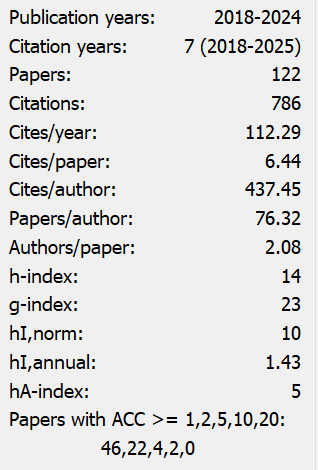Research on the Impact of Algorithmic Management on Employee Work Behavior in Platform Enterprises
Abstract
This paper, set against the backdrop of platform enterprises, examines the impact of algorithmic management on employee work behavior. Through a literature review and theoretical construction, the study first defines the core concepts of platform enterprises, algorithmic management, and employee work behavior, while outlining related theoretical foundations such as institutional theory, the technology acceptance model, and social exchange theory. Based on this, a conceptual model is developed that describes how algorithmic management influences employee behavior through mediating variables such as trust, sense of control, and performance incentives. The research suggests that while algorithmic management enhances work efficiency and enables personalized incentives, it may also trigger issues such as excessive monitoring, privacy infringements, and a decline in employee autonomy. Finally, the paper discusses how platform enterprises should balance technological applications with humanistic care in practice, offering theoretical insights and references for future empirical research.
References
[2] Benlian, A., et al. (2022). Algorithmic management: Bright and dark sides, practical implications, and research opportunities. Business & Information Systems Engineering, 64(6), 825–839. https://doi.org/10.1007/s12599-022-00764-7
[3] Möhlmannn, M., Salge, C. A. de L., & Marabelli, M. (2023). Algorithm sensemaking: How platform workers make sense of algorithmic management. Journal of the Association for Information Systems, 24(1), 35–64. https://doi.org/10.17705/1jais.00781
[4] Shanshi, L., Jialiang, P., & Chuyan, Z. (2021). Is the platform work autonomous? The effect of online labor platform algorithm management on job autonomy. Foreign Economics & Management, 43(2), 51–67. [No DOI available]
[5] Jarrahi, M. H., et al. (2021). Algorithmic management in a work context. Big Data & Society, 8(2), Article 20539517211020332. https://doi.org/10.1177/20539517211020332
[6] Kinowska, H., & Sienkiewicz, Ł. J. (2023). Influence of algorithmic management practices on workplace well-being—Evidence from European organisations. Information Technology & People, 36(8), 21–42. https://doi.org/10.1108/ITP-03-2022-0218
[7] Kinowska, H., & Sienkiewicz, Ł. J. (2023). Influence of algorithmic management practices on workplace well-being—Evidence from European organisations. Information Technology & People, 36(8), 21–42. https://doi.org/10.1108/ITP-03-2022-0218
[8] Stark, D., & Pais, I. (2021). Algorithmic management in the platform economy. Sociologica, 14(3), 47–72. https://doi.org/10.6092/issn.1971-8853/12229
[9] Lang, J. J., et al. (2023). Are algorithmically controlled gig workers deeply burned out? An empirical study on employee work engagement. BMC Psychology, 11(1), Article 354. https://doi.org/10.1186/s40359-023-01376-z
[10] Duggan, J., et al. (2020). Algorithmic management and app-work in the gig economy: A research agenda for employment relations and HRM. Human Resource Management Journal, 30(1), 114–132. https://doi.org/10.1111/1748-8583.12258

This work is licensed under a Creative Commons Attribution 4.0 International License.
Copyright for this article is retained by the author(s), with first publication rights granted to the journal.
This is an open-access article distributed under the terms and conditions of the Creative Commons Attribution license (http://creativecommons.org/licenses/by/4.0/).


























